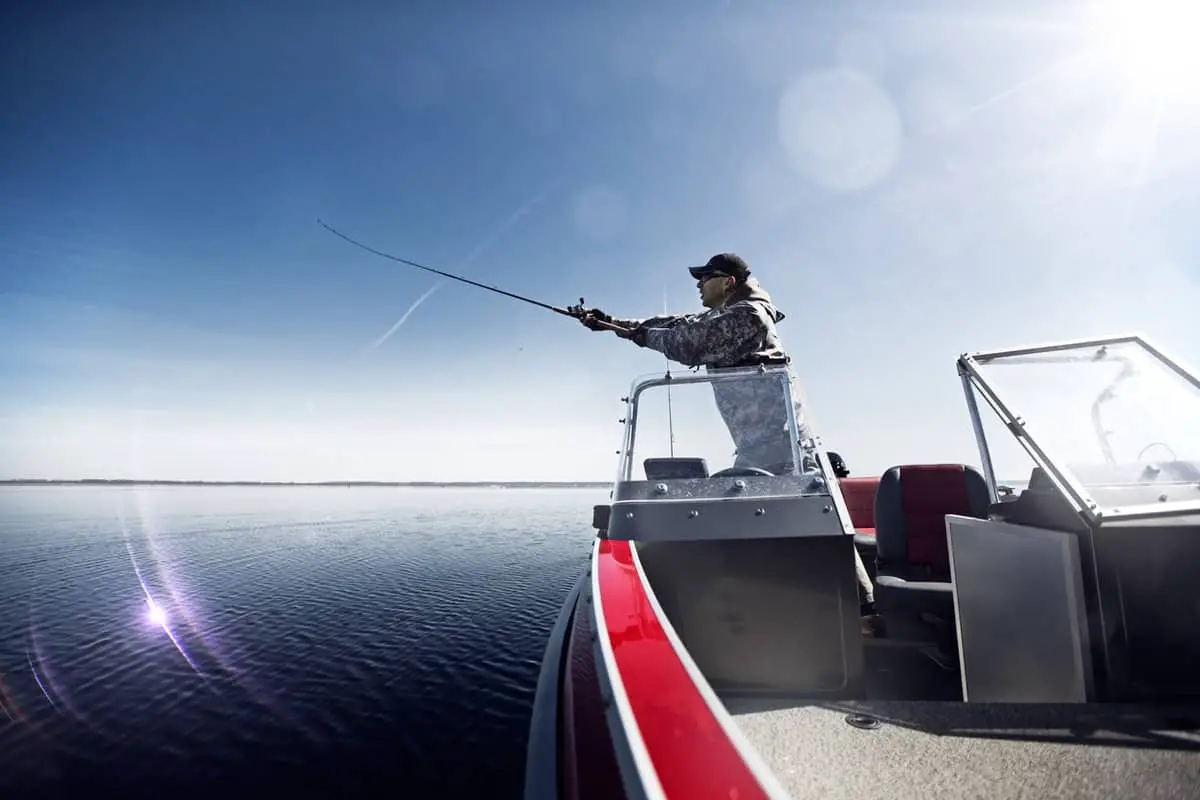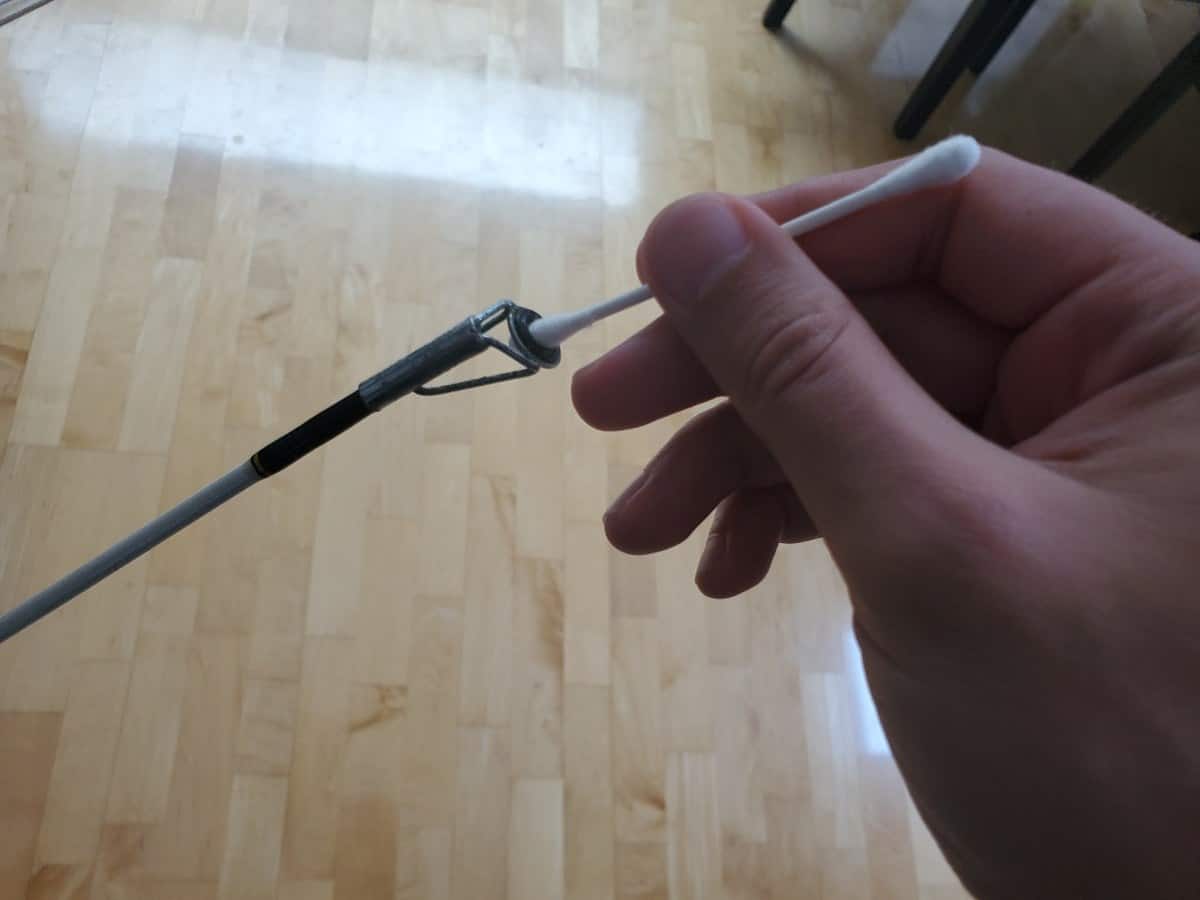
Have you ever been out fishing, and whenever you cast your line, it snaps? This can be frustrating, and you may find yourself asking, “Why is this happening?” Luckily I got some common causes on why this is happening.
- Fishing line isn’t strong enough.
- Casting with too much weight.
- Fishing line is digging into itself on the spool
- Fishing rod guides are damaged
- Fishing reel may have developed a sharp edge
- Fishing Knot came undone or broke
- Not Checking your fishing equipment for wear and tear
- Casting to hard
- Improper casting techniques
- Bird nesting your reel
As irritating as it can be, this is entirely normal and will probably happen to every angler at least once in their fishing career. Heck, I lost two jigs last year because the line snapped when I cast the line!
However, when you experience this, there are a few things you can look for to help identify and resolve the problem. Today, we will discuss all the reasons why your line could be snapping and how to fix each issue.
1. The Fishing Line Isn’t Strong Enough
If you notice your line snapping while you’re casting, the first thing you should do is check what kind of line you are using.
A fishing line could develop micro nicks and defects over time or from general use. These nicks and defects can weaken the line making it more susceptible to snapping. This concern is amplified with lighter fishing lines because the line diameters are smaller (less meat on the line).
To check if your line has nicks or defects, pinch the line so very slightly and gently run your fingers up and down the line. The nicks and defects will feel rough and gritty.
How To Fix This
There are several different options available to you if you determine that your fishing isn’t strong enough.
- Replace your fishing line with a stronger fishing line:
Sometimes we all make mistakes and purchase a fishing line that is to weak and we just have to bit the bullet and respool the reel with a stronger line.
If you replace your fishing line, I suggest you spool the weaker line on an empty spool for future use. But if you’re not interested in keeping your line, you will need to dispose of your fishing line properly; check out my post for tips on how to do that.
- Reduce the weight on the line:
Sometimes we can be guilty with attaching a heavier jig on the line. You know – Bigger the bait, bigger the fish, right? Or perhaps you think having a larger weight will help you cast further than a lighter weight. Whatever your reasoning is, casting puts a lot of force on the line and acts as a weight multiplier. So don’t go crazy on the weight! - Don’t cast the line as hard:
Sometimes you can’t replace the line and you don’t have any other lighter jigs you can use, then what do you do? Well the simple answer is just don’t cast as hard. If casting acts like a weight multiplier then by casting with less force will reduce the multiplier. Yes, you may have a shorter casting distance but your line keeps snapping then which would you prefer?
2. Casting With Too Much Weight
Intuitively, if we put on more weight, we could cast further because there is more momentum. This might be true to some degree, but there’s a point where it becomes too heavy and takes away from your casting distance.
In other words, how far can you throw a 1 lb weight versus a 5 lb weight?
Even though your weight is below the fishing line rated pound test, whenever you cast, a lot of force is created on the fishing to move that weight at a certain speed. Casting is a weight multiplier!
How To Fix It
- Change weight to a lighter weight:
You can reduce the amount of force that the fishing line experiences by simply producing the amount of weight that is on the line. - Don’t cast as hard:
If you’re unable to reduce the amount of weight on your line simply because you don’t have a lighter jig avaiable then try not casting as hard. By dailing back the amount of force you put into your casts can greatly reduce that force multipler which can prevent your fishing line from snapping. - Replace your fishing line it might be getting old:
If you used to cast with a certain weight on the same line that you had for a few years then perhaps that could be a sign that your fishing line is getting to old. Some fishing lines tend to get weaker as it gets older which would explain why the line is snapping now and not before.
Check out my post on how long does fishing line lasts for if you want to learn more.
3. Fishing Line Is Digging Into Itself On The Spool
This issue has more to do with the lighter fishing lines, particularly braided lines, because of the line’s smaller diameter.
Here, the line can tend to dig into itself, acting sort of like a knife. This can be an issue if the line is unevenly spooled on the reel, where you can see the line crossing underneath itself. Also, if the fishing line is too tightly spooled on the reel can cause damage to the line as well.
How To Fix It
- Use A Stronger Fishing Line:
By using a stronger fishing line you effectively increasesd the line diameter a bit which will have less of a tendency to dig into itself. - Ensure Fishing Line Is Evenly Spooled On The Reel:
Probably less of a concern with spinning reel, baitcasters, and some conventional reels because they tend to have a line guide that moves the line up and down the spool evenly as you reel. But there are reels that don’t have this feature. If your reel does not have a line guide on it and you can visually see the line crossing itself underneath then I would make it a habit to guy the line on the reel with your finger as you reel in. - Don’t Use A Crazy Amount Of Tension To Spool Line On Reel:
In our pursuit to get a nice tightly spooled reel, we can sometimes over do it with the tension. When you spool a line with a lot of tension it contributes to the line tending to cut into itself. So dail back the tension. - Consider Using a Line Backing If You Use Braided Lines:
If you use braided fishing line and find that your line keeps breaking on you then you might benefit from using a monofilment backing line. A backing line is a segment of fishing line typically at the last portion of the fishing line that is on the spool which usually does not get used. You can use a stronger monofilament line as a backer which will have more meat. However, keep in mind that monofilament is a soft line and if you spool on the briaded line to tightly it could still cut through the monofilament.
4. Fishing Line Guides Are Damaged
Did you know that your rod’s fishing line guides take a bunch of punishment over their lifespan, and if they are not properly cared for, it could lead to some frustrating moments.
Your fishing line is constantly rubbing against the guides when casting or fighting a fish which can take a toll on your guides. Oh, and I should mention that you should not attach your hooks to a rod’s guide, ESPECIALLY if they are barbed hooks!
Doing any of these things could lead to you creating damage to your guides in the form of small nicks creating a sharp edge. These sharp edges could frail your fishing line, causing your fishing line to snap.
How To Fix It
If your fishing line guides are damaged, you should take your fishing rod to a local tackle shop to perform these repairs. But how do you know if your rod has these nicks on it?
- Grab a Q-tip or a cotton ball and twist it clockwise and counter clockwise inside the guide.
- When you gently pull out the Q-Tip or cotton ball and notice a part of the Q-tip or cotton ball reminding inside the guide then you have a damage d guides.

The Fishing Reel Has A Sharp Edge
After using your reel for an extended amount of time, it can begin to get sharp edges. This can develop if there is damage to the areas where the fishing line runs along. Another possible cause of why your reel might have a sharp edge is due to corrosion. Somethings your reels could be plated on the components where the line runs along. If this coating is damaged or wears away from being used can cause the metal underneath to start rusting. The early stages of rust can develop some sharp edges.
How To Fix It
Similar to the checks for your rod’s guides that we just discussed, you can run a Q-tip or cotton ball on the areas where the fishing line runs along. If you see a small piece of the Q-Tip or cotton ball stuck to the reel means that there is damage.
If this happens, you could take it to a shop to see if they can repair it, but sometimes it might be worth it to get a new reel. Some people suggest smoothing out the edges by using sandpaper. However, doing this will usually cause the good coating around the area to rub off, making sharp edges can form larger. So it will need to be constantly maintained.
A Fishing Knot Came Undone Or Broke
Believe it or not, but sometimes your line may have never actually snapped on you. Instead, what might have happened is that your fishing knot came undone, or your knot may have broke on you.
This tends to happen more often than you think, especially with newer anglers still learning to tie good fishing knots.
How To Fix It
- Check Your Fishng Line’s Condition Before Using It:
Once you make a knot it tends to be the weakest part of your fishing line and its strength doesn’t get better as the fishing line gets older. This is particular an issue with anglers that like to pre-make a bunch of rigs before heading out to the water … like me. If this is you too then you just want to make sure that you check your rigs before using to it to make sure the lines are in good shape. - Lubricate Your Knots Before Cinching Them
A big issue that can cause your knots to break when under load is usually improper cinching of the knot. When you cinch a knot you should always ALWAYS lubricate before cinching. You can lubricate your knot with water or your own saliva will also do the trick. If you don’t do this step then generally speaking the friction created on the fishing line when you cinch the knot can be enough to damage the line weakening it further. - Keep Practing Your Knots!
If your knot simply came undone you can usually tell because the end of the line will be somewhat curly from the knot. There is not much you can do here other than keep practicing with your knots. Eventaully you will get passed this and this will be a thing of the past.
Casting Too Hard
Some people believe that you need to cast extremely hard to get a far cast. But, this is false. Doing this can cause your line to break because when you cast the weight on your line to multiple, creating larger stress on the line than what you think. If the line snags onto your rod or reel as the weight travels through the air, you can say goodbye to your lure.
How To Fix It
There is not much to say here other than “take it easy.” Sometimes trying to cast too hard can lead to more headaches, but I do understand the temptation.
“Further you cast from the shore the deeper the water, and that is where all the big fish are” … I get it.
If you feel that way, you are better off just upsizing your gear instead of playing Russian Roulette.
Final Thoughts
Many reasons could cause your fishing line to snap when casting. If this happens, don’t get frustrated and give up. Look for each of the problems and rule out possible causes. Once you have figured out the problem, use one of these methods to fix it, get back out on the water, and keep fishing!
As long as you’re observant, use proper fishing techniques and equipment, and regularly check and replace your old equipment, you shouldn’t run into any issues. Fishing should be enjoyable, not a hassle, so fixing the problem when it occurs and using preventative measures will ensure a successful fishing trip.
Happy Fishing And Tight Lines!
